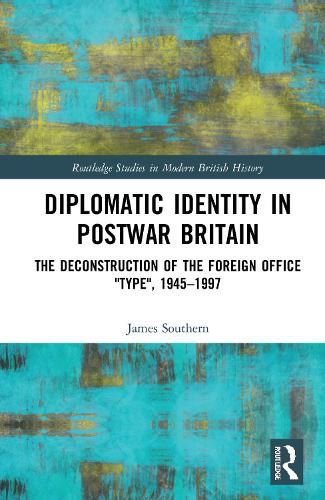Readings Newsletter
Become a Readings Member to make your shopping experience even easier.
Sign in or sign up for free!
You’re not far away from qualifying for FREE standard shipping within Australia
You’ve qualified for FREE standard shipping within Australia
The cart is loading…






This book seeks to understand the complex ways in which the Foreign Office adapted to the rise of identity politics in Britain as it administered British foreign policy during the Cold War and the end of the British Empire. After the Second World War, cultural changes in British society forced a reconsideration of erstwhile diplomatic archetypes, as restricting recruitment to white, heterosexual, upper- or middle-class men gradually became less socially acceptable and less politically expedient.
After the advent of the tripartite school system and then mass university education, the Foreign Office had to consider recruiting candidates who were qualified but had not been ‘socialized’ in the public schools and Oxbridge. Similarly, the passage of the 1948 Nationality Act technically meant nonwhites were eligible to join. The rise of the gay rights movement and postwar women’s liberation both generated further, unique dilemmas for Foreign Office recruiters. Diplomatic Identity in Postwar Britain seeks to destabilize concepts like ‘talent’, ‘merit’, ‘equality’ and ‘representation’, arguing that these were contested ideas that were subject to political and cultural renegotiation and revision throughout the period in question.
$9.00 standard shipping within Australia
FREE standard shipping within Australia for orders over $100.00
Express & International shipping calculated at checkout
This book seeks to understand the complex ways in which the Foreign Office adapted to the rise of identity politics in Britain as it administered British foreign policy during the Cold War and the end of the British Empire. After the Second World War, cultural changes in British society forced a reconsideration of erstwhile diplomatic archetypes, as restricting recruitment to white, heterosexual, upper- or middle-class men gradually became less socially acceptable and less politically expedient.
After the advent of the tripartite school system and then mass university education, the Foreign Office had to consider recruiting candidates who were qualified but had not been ‘socialized’ in the public schools and Oxbridge. Similarly, the passage of the 1948 Nationality Act technically meant nonwhites were eligible to join. The rise of the gay rights movement and postwar women’s liberation both generated further, unique dilemmas for Foreign Office recruiters. Diplomatic Identity in Postwar Britain seeks to destabilize concepts like ‘talent’, ‘merit’, ‘equality’ and ‘representation’, arguing that these were contested ideas that were subject to political and cultural renegotiation and revision throughout the period in question.